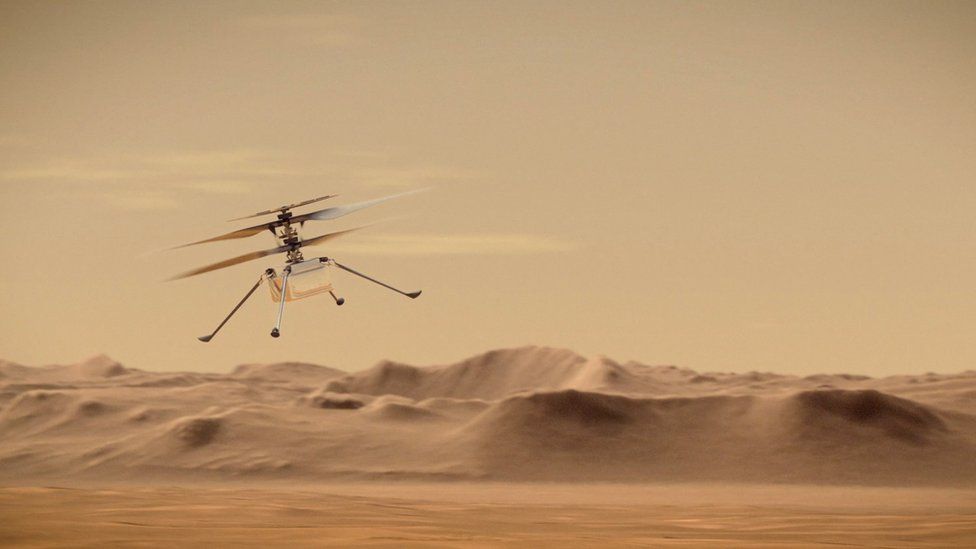ARTICLE AD BOX
 Image source, Reuters
Image source, Reuters
Nasa's Ingenuity Mars helicopter, which made history by achieving the first powered flight on another world, has suffered mission-ending damage.
In a statement, Nasa said the aircraft was forced to perform an "emergency landing" that damaged its rotors.
The space agency's Bill Nelson said the aircraft was "the little helicopter that could" and had racked up far more missions than had been intended.
He said Ingenuity had "paved the way for future flight in our solar system".
Ingenuity is said to remain "upright" but images taken by an accompanying ground vehicle showed that "one or more of its rotor blades" were damaged and it was "no longer capable of flight".
Nasa said the circumstances were being investigated.
"Ingenuity has paved the way for future flight in our solar system, and it's leading the way for smarter, safer human missions to Mars and beyond," Mr Nelson, a Nasa administrator, said in a video message on social media.
"That remarkable helicopter flew higher and farther than we ever imagined and helped Nasa do what we do best - make the impossible, possible."
Ingenuity reached the Red Planet in February 2021 by riding on the belly of the Perseverance rover.
It was meant to be on a short technology demonstration to prove flight was possible in the ultra-thin Martian atmosphere.
The vehicle went on to support Perseverance by previewing areas of Mars that might be of interest, helping the wheeled robot and its drivers on Earth pick the right path.
Before its mission came to an end on Thursday, Ingenuity performed 72 flights and flew more than 14 times farther than originally planned.
Many will mourn the passing of the plucky chopper but its withdrawal from service has probably come at the right time, the BBC's science correspondent Jonathan Amos says.
The Perseverance rover is about to undertake some long, fast drives as it seeks to climb up on to the rim of Jezero Crater.
If still functional, Ingenuity would, in all likelihood, have struggled to keep up with Perseverance, or at the very least held up the rover's exploration.

 11 months ago
56
11 months ago
56








 English (US) ·
English (US) ·